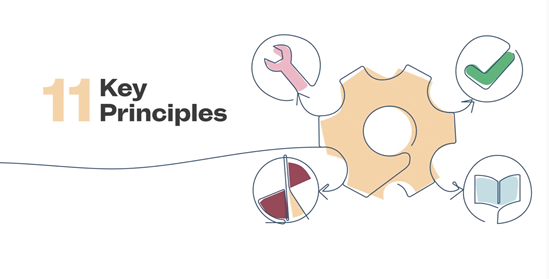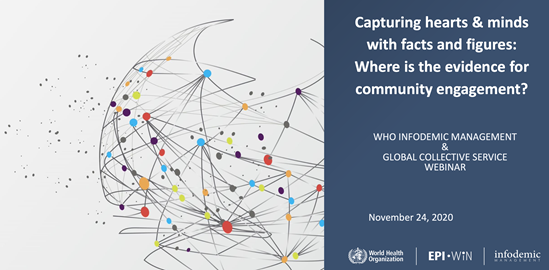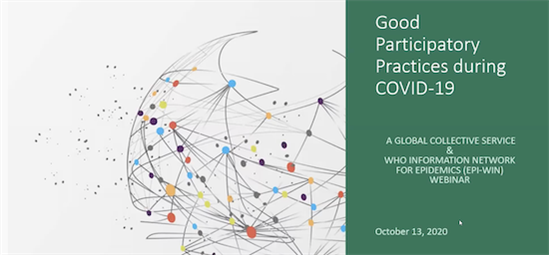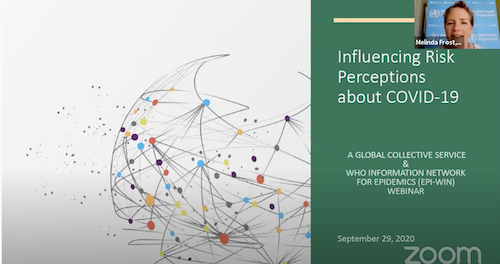The Collective Service
A new partnership for strengthening risk communication and community engagement in public health and humanitarian emergencies
The Collective Service aims to deliver, for the first time, the structures and mechanisms required for a coordinated community-centred approach to risk communication and community engagement embedded across public health, humanitarian, and development response efforts.
Launched in June 2020, the Collective Service is a partnership between the International Federation of Red Cross and Red Crescent Societies (IFRC), United Nations Children's Fund (UNICEF) and the World Health Organization (WHO), which leverages active support from the Global Outbreak Alert and Response Network (GOARN), and key stakeholders from the public health and humanitarian sectors.
Prior outbreak responses have demonstrated the need for expanding and refining collective approaches to community engagement during public health emergency and humanitarian responses. The COVID-19 pandemic requires a rapid scale-up to respond to the unprecedented challenges and growing demand for support.
The Collective Service is bolstering the capacity of governments and partners to prioritize, structure and coordinate their work—ensuring a lasting impact. Community capacities, knowledge, feedback and insights inform decision-making at every step of the response, improving both the quality and the consistency of risk communication and community engagement.
The information gathered is also being used to mitigate the threat and spread of misinformation and disinformation at a global, regional and national level. Motivating community members to participate in sharing trustworthy information, halting rumours and enhancing knowledge about the disease is crucial to ensure lifesaving solutions reach and are embraced by those most in need.
10 step to community readiness

Access slide sets in 4 languages
Engaging communities in contact tracing

Contact tracing is a key component of a public health response to infectious disease outbreaks. The purpose of this guidance is to reinforce the place...
Empowering families during COVID-19
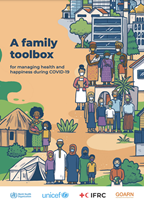
People-centered approaches that help communities maintain protective behaviours and follow guidelines set out by public health and government agencies...
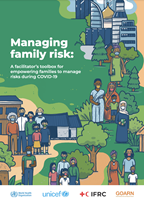
Managing family risk: A facilitator’s toolbox for empowering families to manage risks during COVID-19
People-centered approaches that help communities maintain protective behaviours and follow guidelines set out by public health and government agencies...
Publications

COVID-19 Global Risk Communication and Community Engagement Strategy – interim guidance
There is an unprecedented need to elevate the role risk communication and community engagement (RCCE) plays in breaking the chains of transmission and...
Strategic priorities
The Collective Service will support the delivery of the Global Risk Communication and Community Engagement Strategy, the 2019 Novel Coronavirus (2019nCoV) Strategic Preparedness and Response Plan and the COVID-19 Global Humanitarian Response Plan.
To make this possible, the Collective Service will work across four strategic priorities to:
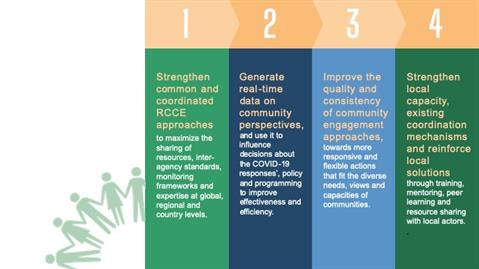
Supporting a global response
The Collective Service hosts a coordination forum, open to any organization working in risk communication and community engagement and COVID-19. With support from GOARN, it is supported by dedicated sub-groups on specific topics (i.e community engagement in low-resource settings, migrants, refugees and other vulnerable groups, and analytics for operations).
You can learn more about the Collective Service here and watch the webinars below:
We also encourage you to sign-up for the Collective Service weekly newsletter which provides valuable insights and updates on RCCE research, guidance, tools and exciting initiatives from around the globe.
For more content on RCCE, please access GOARN knowledge hub and the Collective Service website.
For more information on how to get involved in engaging with the Collective Service please contact:
• Ombretta Baggio, Coordinator, ombretta.baggio@ifrc.org
• Brian Riley, Technical Officer, Risk Communication, rileyb@who.int
• Carla Daher, Communication for Development, cdaher@unicef.org
• Sameera Suri, Technical Officer, GOARN, suris@who.int



